Tweet By US Envoy For Iran Angers Social Media Users
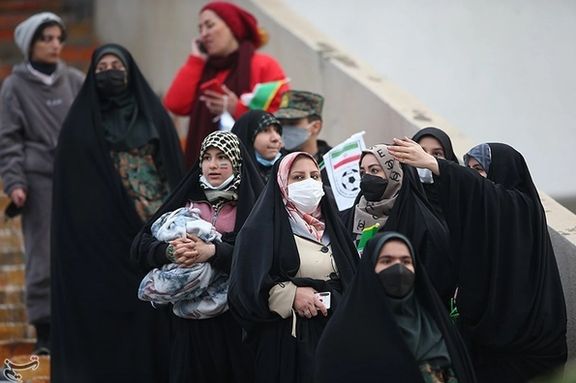
A tweet by US Special Envoy for Iran Robert Malley about the Islamic Republic allowing women into the stadium for a football match has drawn criticism by hundreds of Iranians.

A tweet by US Special Envoy for Iran Robert Malley about the Islamic Republic allowing women into the stadium for a football match has drawn criticism by hundreds of Iranians.
Following the national soccer team’s victory against Iraq in a world cup qualifier, Malley congratulated the victory and said on twitterthat “It’s good to see women were allowed to attend the match”.
His post has angered Iranian social media users because he disregarded the fact that the government allowed only a small number of women into the stadium and many were cherry-picked by the authorities.
Malley also ignored the fact that Iran was forced by world soccer body FIFA to allow women into stadiums otherwise it would face global suspension or at least lose its hosting rights.
Many users called on Malley to stop supporting the Islamic Republic, with one political activist sayingthat Malley is either deceived by Iran’s propaganda or wants to deceive the world by echoing it.
Despite the FIFA order to allow women into stadiums without restriction and in numbers determined by demand for tickets, Iran reserved 2,000 seats for women, and they had to sit in segregated areas. There were also reports that a dozen female reporters and journalists were not allowed into the stadium.
Following repeated calls by hardliner politicians and media not to allow women to attend the next match, Iran has announced the Tuesday game against the UAE will have no spectators, mentioning Covid-19 as the reason.
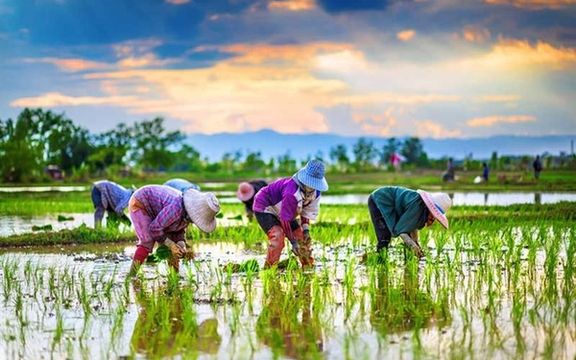
Iran's agriculture minister said Friday the Revolutionary Guards’ engineering arm Khatam ol-Anbia are to boost rice production with a $3 billion project.
According to the semi-official Mehr news agency, Javad Sadatinejad announced a five-year project, agreed by the ministry and Khatam ol-Anbia, that would be resourced through bartering oil.
The minister made the comments at a meeting in Roudsar, Gilan province, during a visit by President Ebrahim Raisi (Raeesi). "Initial agreements have been made and 7 trillion rials was allocated to this purpose during this visit," Sadatinejad said.
The IRGC is involved in many areas of the economy, including industrial and road construction, housing, and agriculture. In early January, the Minister of Energy Ali-Akbar Mehrabian said the ministry had concluded a 300-billion rial contract with the IRGC's Imam Hasan Headquarters for water projects in rural areas.
Sadatinejad said Iran imported around 1 million metric tons of rice annually but had the potential to be self-sufficient in line, he said, with the Raisi administration's top priorities.
Per capita rice consumption in Iran is around 35kg, putting overall consumption, including by agro-food industries, at 3.5 million tons. The highest output, achieved in 2018, was 1.9 million tons.
Major production is concentrated in the Caspian coastal provinces of Gilan, Mazandaran, and Golestan, which together produce over 75 percent of rice grown in Iran. Much of the terrain is mountainous or forested, leaving just a narrow strip for rice and other agriculture.
Other provinces including Esfahan, Khuzestan, and Fars produce rice on a small scale. Almost all these provinces have been hit by drought in the past few years and the ministry has banned rice cultivation in some provinces, including Golestan, which is among the provinces with the highest precipitation.
In 2013 the secretary of Iran's Rice Producers' Association, Jamil Alizadeh, said self-sufficiency in rice production was not logical given the crop requires intensive irrigation. Alizadeh said the country had 630,000 hectares of rice paddies but irrigation could be considered assured for only 520,000 with remaining crops vulnerable to drought.
Like much of the wider region, Iran has faced serious drought over two decades, with water shortages affecting around one-fourth of Iranian cities. Critics also blame water-intensive industries, and water stress had led to protests in affected areas, including the south-western province of Khuzestan and the central province of Esfahan since July this year, as communities vie for water supply.
In 2004 Iran announced self-sufficiency in wheat production, but four years later had to import over 5.4 million tons, which made it the world’s fourth-largest wheat importer. Imports continued until 2015, but since then the country imports only to maintain strategic food reserves.
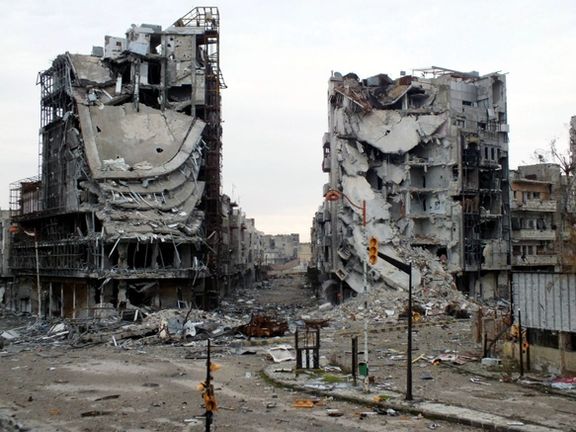
A member of parliament has said Iran is ready to build up to 500,000 residential units in Syria as part of that country’s reconstruction projects.
Mohammad-Reza Rezaee-Kuchi, who is the chairman of the Islamic Republic parliament’s construction committee said he was in Syria recently with a delegation of Iran’s ministry of roads and urban development to discuss how Iran could participate in the reconstruction of the war-ravaged country.
Two years ago, Iran signed an agreement with Syria to build 30,000 residential units, but a deputy minister later said the government could build 200,000 units.
Government officials had said earlier that Iran does not intend to pay for the projects but wants to secure a role for its companies in Syria’s construction. This would undoubtedly include the Revolutionary Guard construction arm, Khatam ol-Anbia, which has a dominating position in Iran due to its political clout.
Iran, which is suffering from a serious economic crisis, is unable to repair its own schools and complete public works. During mass protests in recent years disgruntled citizens have chanted slogans against involvement in Syria and elsewhere while many Iranians increasingly fall into poverty.
Hardliner president Ebrahim Raisi has promised to build 4 million apartments for low-income people during his term in office but so far, there is no sign of any construction.
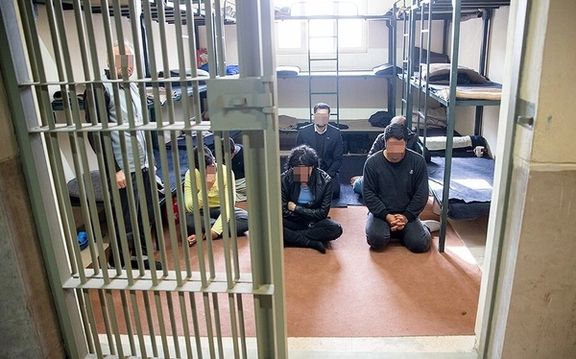
Guards and medical staff in a prison in Iran have attacked and beaten a number of political prisoners who had started a hunger strike.
Saeed Tamajidi, one of the prisoners who was arrested during 2019 popular protests also known as the Bloody November, broke the news in a Friday phone call from the Greater Tehran Central Penitentiary also known as Fashafuyeh.
He said several prisoners on hunger strike who were feeling sick were taken to the prison infirmary to register their vital signs but were insulted and threatened with a knife by one of the doctors there.
He added that following an argument, the doctor attacked him with a knife and medical staff and guards started beating him and others, injuring several of the prisoners.
Tamajidi said they were on a hunger strike to protest lack of proper care by the prison’s authorities and the death of Baktash Abtin a poet and a political prisoner.
Abtin died of Covid-19 complications following days of medically induced coma earlier in January after he was denied timely treatment by officials at Tehran’s notorious Evin prison.
A People's Tribunal organized by human rights advocates is slated to hold its next session in a few weeks to investigate the atrocities during the November 2019 protests, which were the bloodiest in Iran’s history with security forces opening fire on demonstrators in many cities, killing hundreds.
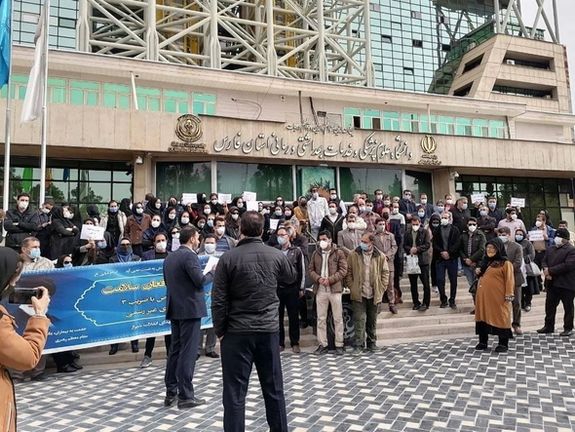
Iranian teachers have started a nationwide strike to demand higher salaries and release of their colleagues who were arrested during previous protests.
According to the Coordination Council of Iranian Teachers’ Trade Associations, the strike, which started on Saturday will last for two days and will be followed by a protest rallies.
This week’s demonstration is scheduled for Monday, while the teachers have announced they will stage another strike and protest in about two weeks too.
In the previous rounds of rallies, the teachers gathered in front of the parliament building in Tehran and the provincial offices of the education ministry to protest the parliament’s adoption of a discriminatory ranking plan.
Also on Saturday, Iranian nurses held protests in many cities across the country to protest higher pay and long-term contracts.
Workers and employees from various economic sectors hold regular protest rallies or strikes to demand better working conditions and salaries.
Earlier in January, hundreds of firefighters and staff members from Iran’s hardliner judiciary department took to the streets in several cities, in what was an unprecedented development. Even prison guards have picketed to protest their low salaries.
Food prices have risen by more than 60 percent in recent months, on top of high inflation in the previous three years, while the government is unable to sufficiently boost wages

Iran newspaper Saturday said ex-president Mahmoud Ahmadinejad was damaging Iran’s security by alleging a United States-Russian plot to invade Iran and Ukraine.
In a speech to supporters in Tehran Thursday, Ahmadinejad warned of a "danger of invasion and war" after a "dirty deal" between the two world powers. "I have accurate knowledge that Russia and the US have traded Iran and Ukraine,” he said. “The US will allow Russia to invade Ukraine…allowing the US to move onto Iran.”
"Who has allowed you to make secret deals behind the scenes over Iran?" he asked the world powers Washington and Moscow. "You shouldn't be under the illusion that all Iranians are simpletons like a number of officials that you have met” – possibly referring to President Ebrahim Raisi (Raeesi), recently in Moscow, or Iranian diplomats in the Vienna nuclear talks.
Iran newspaper, which is government-owned, posed a series of questions about the former president’s outburst: “Whose interests is Ahmadinejad trying to secure, and to whom is he offering the gift of instilling fear in the Iranian people? Where is Ahmadinejad getting his ‘accurate information’ from?”
The newspaper was in no doubt that the former president’s claim was “clearly an act against national security.” And “more importantly, it should be clarified who has instilled such false and contrived information in him?"
‘Satan’s partner’
Ahmadinejad, who left office in 2013 and was not cleared to run in the 2017 and 2021 presidential elections, has become a strident critic of foreign policy, with comments laced with allegations of conspiracies.
Ali-Akbar Javanfekr, Ahmadinejad's close associate and confidante, has called Russian President Vladimir Putin “a partner of the Great Satan,” meaning the US.
In his latest speech, Ahmadinejad argued that Russia had “always been against the Iranian people,” and has “always sold Iran,” referring to the expansion of the Russian empire at the expense of Iran’s Qajar dynasty during the early nineteenth century. There were clear parallels with Tehran’s current, relatively warm relations with Russia, Ahmadinejad argued: "Now some people have come out of nowhere saying Russia has changed!"
Since June Ahmadinejad has also criticized Iran's 25-year cooperation agreement with China, which was officially launched during Foreign Minister Hossein Amir-Abdollahian's recent visit to Beijing. During his trip to Moscow last week, Raisi presented a draft of a strategic bilateral agreement to Putin.
While reformist Arman-e Melli newspaper suggested Ahmadinejad should find a better way to "be seen and to influence the government and the society," Iran newspaper said it was "too simplistic" to see Ahmadinejad's remarks as a way just to attract attention.